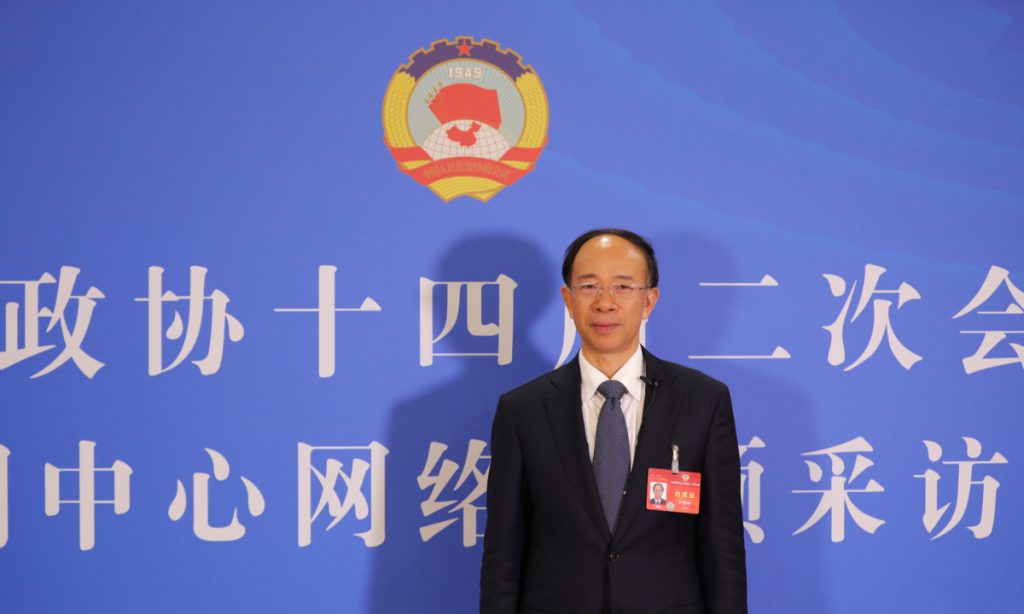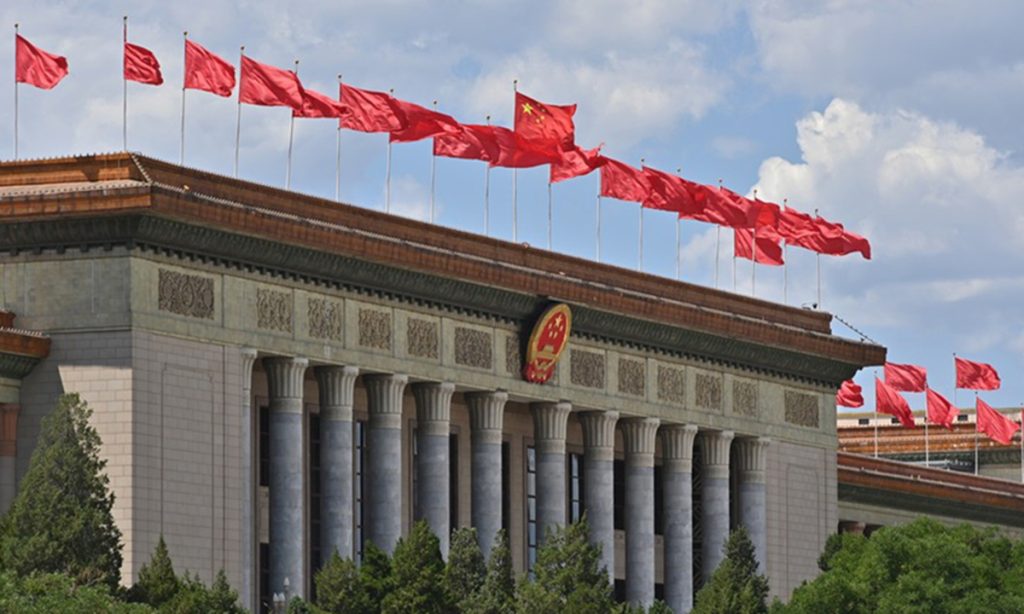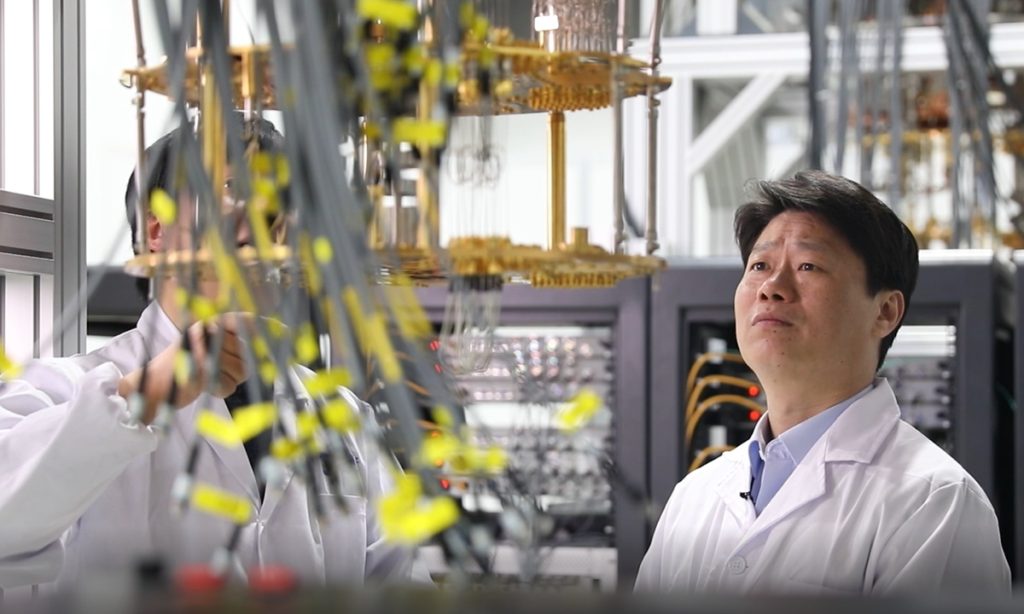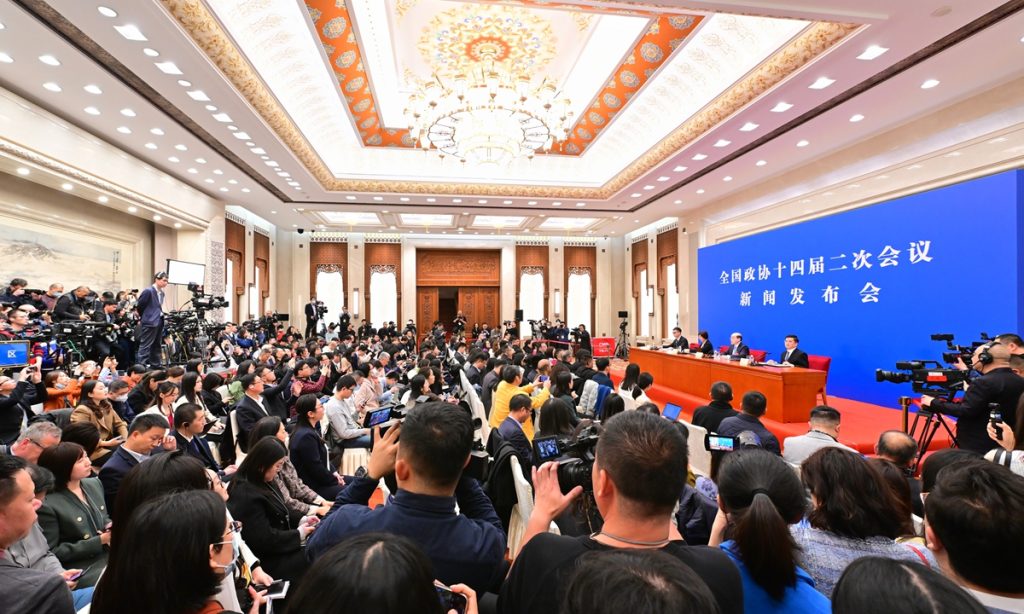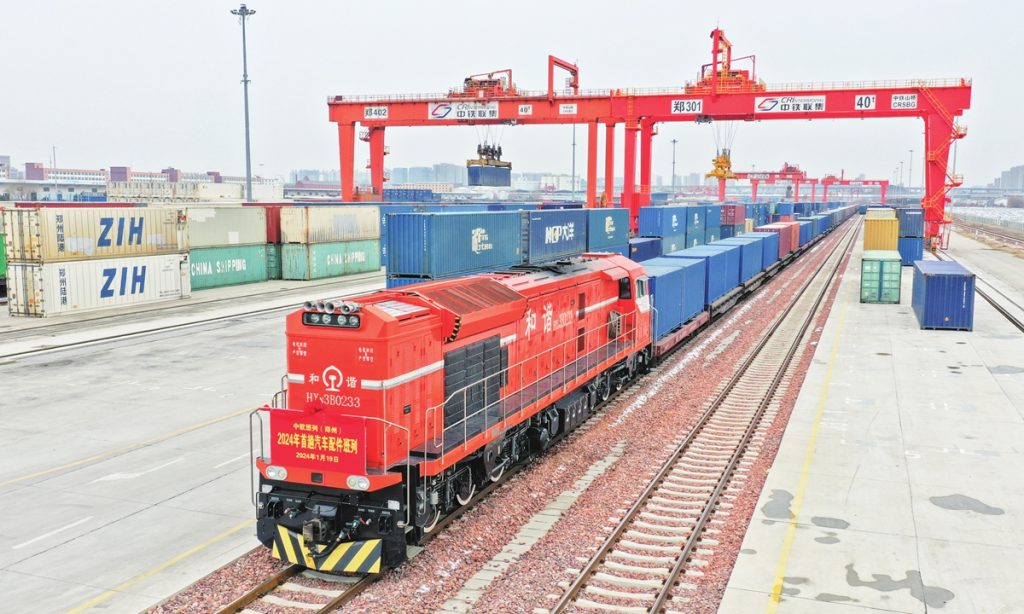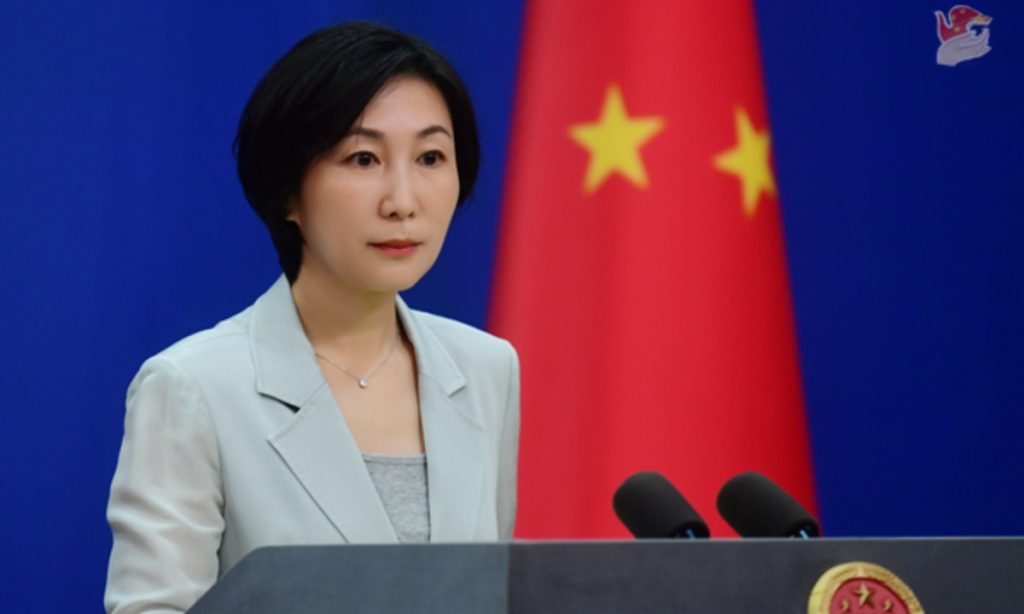Electricity enables high-quality tea
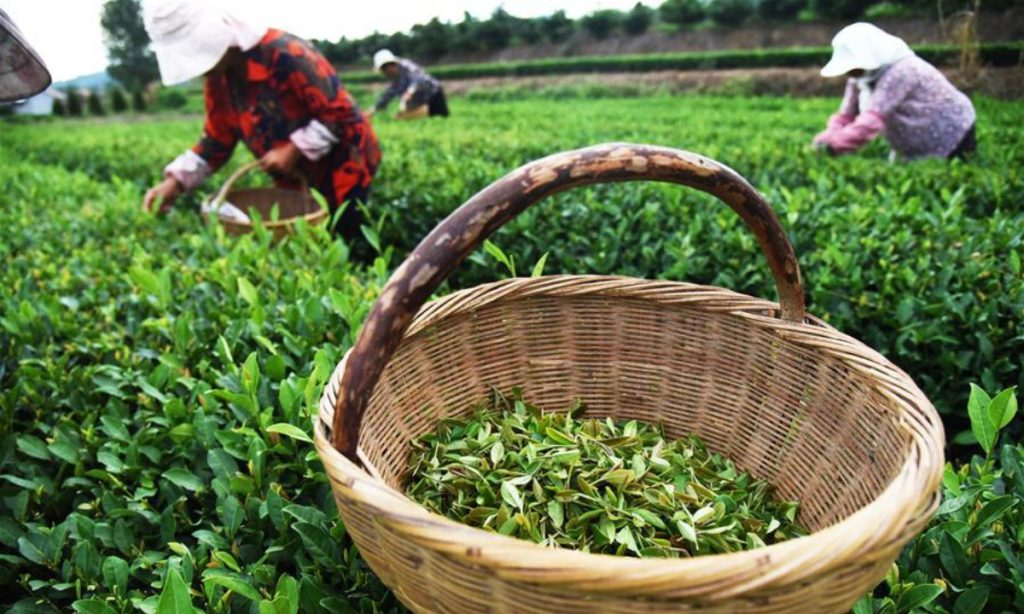
Jufeng town, Lanshan district, Rizhao city, stands as one of the main tea-producing areas in north China. Surrounded by mountains on three sides and bordered by the sea on the fourth, the area is higher in the north and lower in the south, featuring soil with a slightly acidic nature. Such unique geographical conditions and microclimate nurture Jufeng green tea with strong fragrance and flavor, earning the area the title of "hometown of green tea in the north of the Yangtze River." Over the years, the traditional tea planting and processing methods in Rizhao city have given rise to poor yields, low prices, and subpar taste. In light of this, Rizhao Power Supply Company has been guiding tea factories and farmers in adopting electric processing and irrigation for tea, providing high-quality and reliable services throughout. These efforts have enabled Jufeng, a remote and secluded town, to keep pace with the modern advanced approaches to tea production. The transition from fuel-powered and wood-fired methods to electrified planting, irrigation, and processing marks a successful evolution in Rizhao green tea since its introduction from the south to the north half a century ago.
The power supply company always cares about tea yields and farmers' income
On March 11, like the beginning of spring each year, before the tea stir-drying machines hum and the tea irrigation reaches its peak, employees from the Jufeng Power Supply Station of Rizhao Power Supply Company visited the tea gardens in Houshanwang village and the Baiman Tea Factory in Houyaxia village. They offered on-site and value-added services to local tea farmers and factories, such as overhauling the irrigation and electric equipment, so as to secure a safe and uninterrupted power supply for irrigation and tea production.
"You couldn't have come at a better time. The favorable soil moisture conditions last winter and this spring went fast as the temperatures rose rapidly with an increasing evaporation rate since March. We were concerned about whether our irrigation equipment, which had been idle for almost half a year, would function properly. Fortunately, thanks to your proactive overhaul, we can ensure smooth irrigation of the tea gardens to improve soil moisture," said Zhang Chenghong, Party Branch Secretary of Houshanwang village, who was busy preparing for irrigation in the tea garden. "As the saying goes, tea picked early is as valuable as treasure, while tea picked late is as worthless as grass. The power station staff's assistance enabled timely irrigation for over 400 mu of tea and early picking in our village." A nearby tea farmer said humorously, "The old saying always emphasizes 'effort and luck,' but I believe it should now be 'effort and electricity.' With the help of the power supply station, our tea won't go thirsty. When our spring tea hits the market first, it will surely fetch a good price." His words elicited laughter from those present.
"This year's spring tea is expected to enter the picking season soon. From mid to late April is the golden period for harvesting, during which the dryer, roller, and tea strip-tidying machines will operate at full throttle all day, consuming several times more electricity than usual," said Song Baiman, Director of Baiman Tea Factory and Leading Science Popularizer in Shandong Province, addressing the power station staff. "In the past, as laymen, we repair equipment ourselves, simply by dusting the body or tightening the screws. Consequently, various issues inevitably arose during the peak production of spring tea. Now, with your professional on-site services, such as checking and repairing all power-driven equipment and addressing overheating joints in the circuits, as well as the power line upgrade last year, we don't have to worry about the production and profitability this year."
Clean electric irrigation has significantly increased tea planting area and quality
Tea planting is the foundation for producing high-quality tea. Due to the low temperatures and precipitation levels, tea grown in the north of the Yangtze River develops a strong and enduring flavor but yields poorly. The key to achieving high yields lies in water.
"In the past, we relied on water conservancy facilities built in the 1960s and 1970s for irrigation, most of which had fallen into disrepair. Subsequently, diesel engines were employed, resulting in high costs, heavy pollution, and limited irrigated areas. However, the power supply station took the initiative by extending 10-kilovolt high-voltage lines directly to the fields and installing a transformer for irrigation purposes near the reservoir. This enables us to benefit from national electricity subsidies for agricultural irrigation. As we collectively invested in improving the sprinkler irrigation facilities in our village, with just a twist of the switch, over 500 mu of tea garden can be irritated," said Zhang Shouzan, Party Branch Secretary of Qianshan Beitou village, Jufeng town, on March 15.
Rows of sprinklers stand amid the tea gardens, yet not a single telegraph pole or transmission line is in sight. Li Zhaochun, director of the Jufeng Power Supply Station, said all power lines within the tea gardens are buried underground, saving space and minimizing the impact on tea planting and picking.
Zhang Shouzan elaborated on the advantages of sprinkler irrigation. For example, tea shoots have become fleshier, leading to an increase in the proportion of high-quality shoots, and in the production of fresh tea leaves by 15-25%. Additionally, there has been a notable rise in the content of key biochemical components such as amino nitrogen and catechin. Moreover, sprinkler irrigation can significantly save water consumption while reducing soil compaction rates, raising the average tea revenue to 20,000 yuan ($2,779) per mu.
With the scale and yield of tea planting on the rise, a common concern among people is whether tea farmers will resort to heavy pesticide usage during pest control.
"As tea leaves are directly brewed and drunk by people, the method for repelling or killing insects has evolved to an electric approach in our tea gardens. There is no need to worry about pesticide residues," said Zhang Shouzan.
Electric tea stir-drying secures Rizhao's leading role in green tea in north China
Those well-versed in tea understand that high-quality fresh tea leaves do not necessarily guarantee the production of excellent tea. Electrified tea stir-drying plays a crucial role in winning market share and acclaim.
Bojiakou village is famous for its specialized tea stir-drying in Rizhao city. Yuyuanchun Tea Factory, with over 30 years of history, is nestled in this village. Factory Director Yuan Congbo led workers in installing a newly purchased microwave tea fixation machine. According to him, before 2012, tea processing in Rizhao primarily adhered to craft production, involving manual tea tedding, fixation, and packaging, and heating and drying mostly relied on fuel and firewood. This labor-intensive method led to higher distortion in taste and color, lower tea quality, limited production capacity, and uncompetitive price. With the improvement in the power grid's capacity, an increasing number of tea farmers have purchased electric equipment for tea fixation, rolling, and drying. Yuan has successively acquired the tedder, fixation machine, electric stove, pressing machine, and packaging machine to electrify tea production, significantly enhancing both capacity and efficiency.
Yuan explained that electrified stir-drying makes it easier to control the duration and degree of heating, thereby preserving tea's natural color and flavor. Additionally, tea leaves have a strong ability to absorb odors, and the colorless and odorless electricity doesn't produce the smoke and pollution caused by coal, fuel, and firewood. The hygienic and clean electricity, paired with stainless steel equipment casings, maximizes the retention of the tea's original flavor.
Maintaining tea freshness is crucial, as tea leaves are vulnerable to oxidation which changes their taste. Thanks to a robust power grid, many tea stir-drying farmers have built cold storage warehouses to preserve the tea leaves before they are sold.
Today, Rizhao's tea enterprises have emerged as pioneers of the tea industry in north China, establishing the benchmark for tea production and processing in the region.
Electricity has changed the lifestyle of villagers
In the past, due to poverty, farmers in Jufeng town sought jobs in other places. However, with the improvements in electricity and transportation infrastructure in rural areas, an increasing number of villagers are choosing to operate tea gardens, and more tea factories are settling in the village from other regions. A medium-sized tea factory typically requires 20 to 30 workers during regular times, and 50 to 60 workers during harvest seasons. As a result, farmers in Jufeng have stopped migrating, and many farmers from surrounding towns have come to seek jobs in Jufeng. During the tea harvesting season, some tea gardens even experience labor shortages.
"Electricity has enabled the industrialization of tea planting and stir-drying, and large-scale tea production to meet market demand. Currently, apart from vegetable gardens, tea gardens occupy most of our village's land. Although the income from tea planting is not significantly higher compared to working elsewhere, it allows villagers to stay at home and avoid the hardships of being away," said Liu Weiming, a villager from Liujia village in Jufeng town.
The development of the tea industry has attracted nearby villagers to earn money through picking tea. "I have an eight-mu tea garden. During busy times, in addition to my family of two, we also need to hire four to five people," added Liu.
Tea farmers are more motivated to plant and pick tea with more convenient tea planting methods, assured yields, quality, and prices, and improved services such as power supply. Villagers no longer need to migrate and can dedicate themselves to operating their tea gardens.
"Supporting the tea industry not only relates to the overall economic development of the town but also signifies a political commitment. With tea gardens in every household, we have essentially addressed issues like empty-nest elders and left-behind children in our town, thereby increasing the happiness of our villagers," remarked Wang Dongliang, Party Secretary of the CPC Jufeng Town Committee.
Electricity has changed the green tea planting and processing methods in Rizhao, as well as the lives and fortunes of tea farmers. Leveraging electricity, the variety, quality, and brand of Rizhao green tea have improved, leading to development, expansion, and extension of the tea industry.

